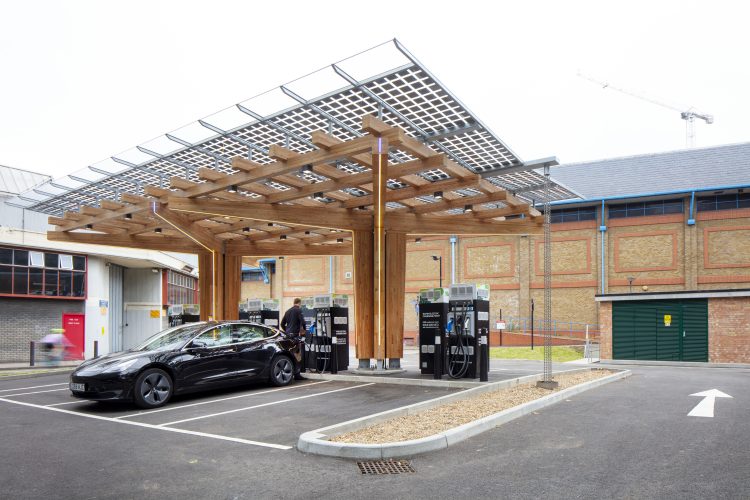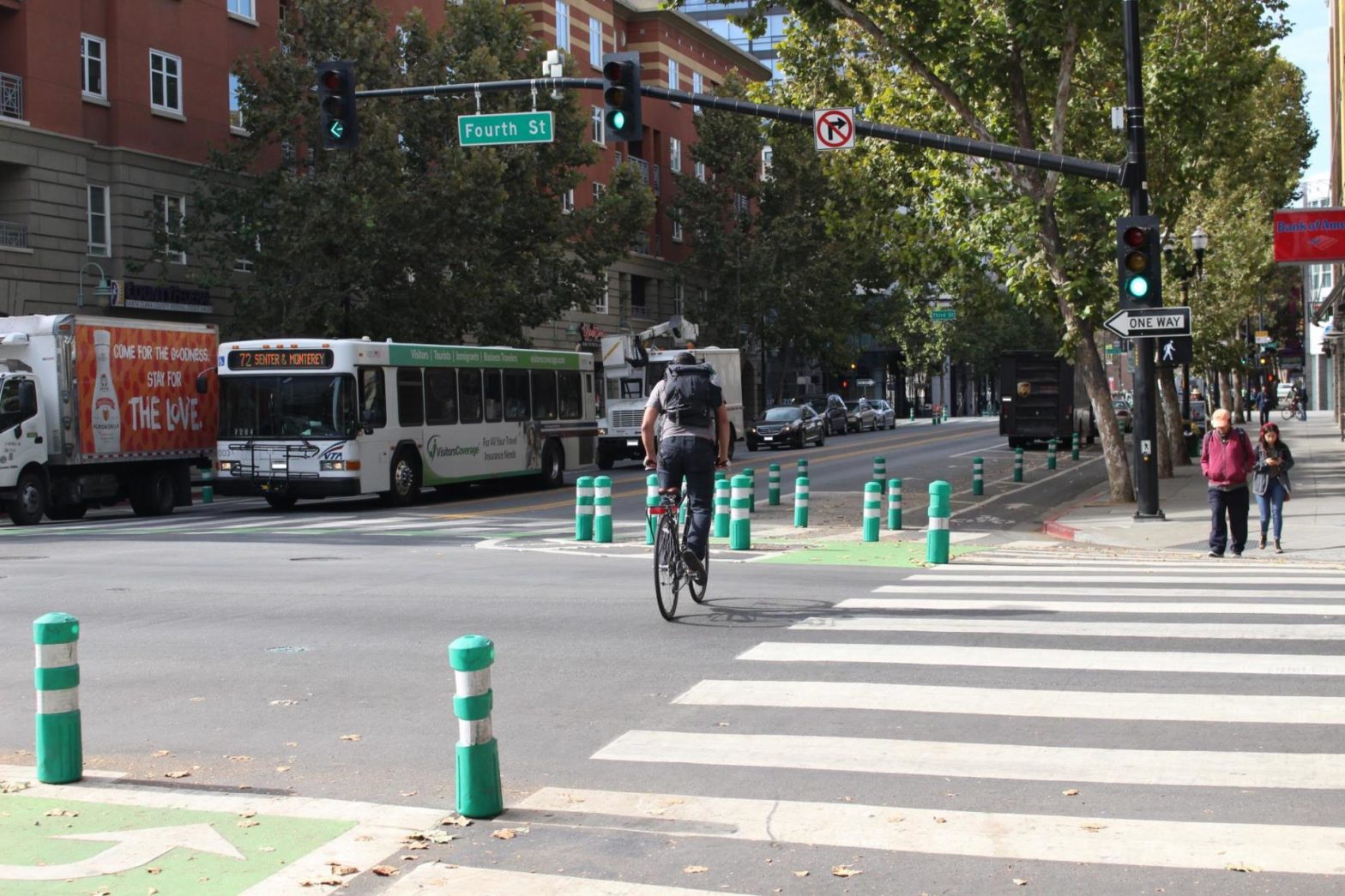
Photo: TfL
Transport for London opens rapid EV charging hub
07 September 2021
by Christopher Carey
Transport for London (TfL) has opened the second of five rapid charging electric vehicle (EV) hubs planned for the UK capital.
The new facility, located in south London, allows drivers to charge in 20-30 minutes, with eight charging spots available.
The hub is part of a £2 million (US$2.77 million) investment by TfL, working in collaboration with charge point operator ESB Energy and Siemens Mobility Limited.
“It’s essential that we increase the supply of charging infrastructure for electric vehicles as we support the shift to these vehicles to clean up London’s air and decarbonise transport in the city,” said Alex Williams, TfL’s Director of City Planning.
“We have seen an increase of more than 2,000 charging points in the capital over the last year and these new hubs are a key part of that expansion.
“Electric vehicle charging hubs that can be used in the same way as a traditional petrol station but without pumping toxic fumes are important in helping people to feel comfortable taking the plunge with an electric vehicle.”
There are now more than 7,000 charging points – including slow and fast charging – within the Greater London area.
ULEZ expansion
On 25 October, the Ultra Low Emission Zone (ULEZ) will expand to cover all of London’s boroughs – 18 times the size of the current zone.
Drivers of older, more polluting vehicles – diesel vehicles registered before 2015 and petrol vehicles registered before 2005 are unlikely to comply with the exhaust emission rules – will face a £12.50 charge every time they drive within the zone.
They will also face a further £15 charge if they drive within the congestion zone.
TfL expects the expanded ULEZ zone will contribute to a 30 percent drop in harmful nitrogen dioxide levels across the city, and lead to a rise in the numbers taking public transport.
Ahead of the planned expansion, London Mayor Sadiq Khan has encouraged people to do away with older, polluting vehicles with a £60 million scrappage scheme.
This has already seen more than 11,000 retrofitted or put beyond use.
The mayor’s Electric Vehicle Infrastructure Delivery Plan estimates that by 2025, London may need up to 4,000 rapid charging points and up to 48,000 residential chargers as more people and businesses move to electric vehicles.
“Petrol and diesel vehicles are major contributors to air pollution in London so it is essential that we make it as easy as possible for people to swap their cars, vans and motorcycles to greener, electric versions,” said Khan.
“We are facing a climate emergency and, as the UK prepares to host the COP 26 climate conference later this year, it has never been more important to encourage people, organisations and businesses to make the change to zero emission vehicles to support my aim for London to become net zero carbon by 2030.”
London leads the way in the UK with around a third of the country’s EV charging points – but the roll out in other cities and towns remains patchy.
Image: TfL











